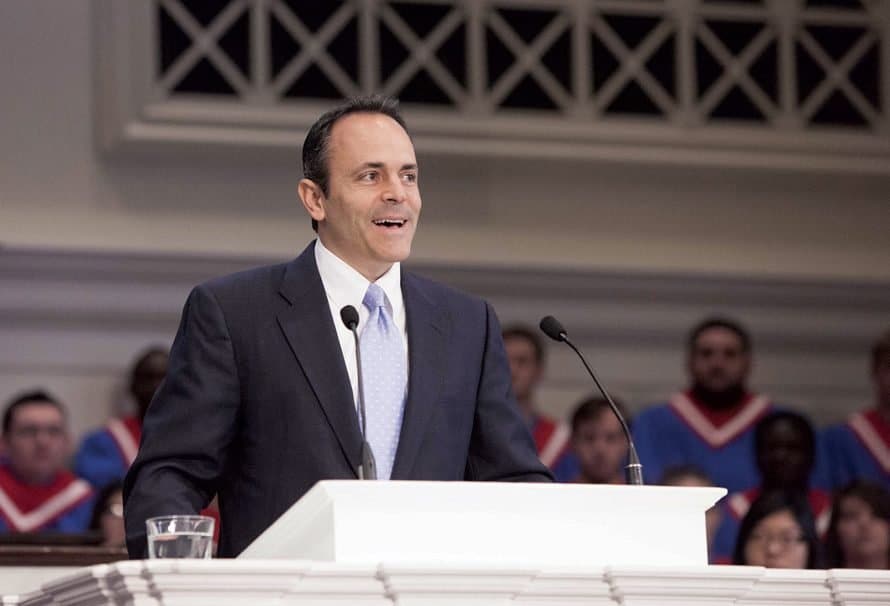NASHVILLE (BP) – Pro-family voters scored wins at the polls Nov. 3.
Houston overturned a measure granting protected status to homosexuals and transgendered persons. Both Kentucky and Mississippi elected governors who are pro-life and opposed to same-sex marriage, and Ohio defeated recreational marijuana.
Ryan Anderson, a senior research fellow at The Heritage Foundation, wrote in an online commentary that Election Day 2015 disproved the “conventional wisdom … that social liberalism is an electoral winner.”
“That’s not true,” Anderson wrote. “At least not in the swing states of Kentucky and Ohio, and not even in the liberal city of Houston. And definitely not last night. There’s a lesson to be learned: Conservatives can win when they refuse to be bullied by elites into silence. Making the public argument against bad policy and in support of good policy can win the day. It just did.”
In Texas, the Houston Equal Rights Ordinance (HERO) was repealed by a 62-38 majority, KHOU television reported. The ordinance — passed by the city council in May 2014 but stayed by a judge pending the repeal vote — would have extended civil rights protections to individuals based on their sexual orientation and gender identity.
The repeal marked the culmination of an 18-month legal battle between city officials and HERO opponents who sought to place the measure’s repeal before voters. In July, the Texas Supreme Court ordered Houston’s city council either to repeal HERO or send it to voters. In August, the council opted for a public vote.
Houston mayor Annise Parker, an open lesbian who supported HERO, said following the election that opponents of the ordinance “just kept spewing an ugly wad of lies from our TV screens and from our pulpits,” the Houston Chronicle reported. A year ago, Parker drew criticism for subpoenaing the sermons of pastors who opposed HERO. She later withdrew the subpoenas.
Jonathan Saenz, president of the pro-family group Texas Values Action, called the repeal “a massive victory for common sense, safety and religious freedom.” Saenz and other HERO opponents claimed the law would have allowed, among other things, the use of women’s restrooms and locker rooms by men.
“The eyes of the nation were on Houston, and the people sent a clear message and soundly rejected this intentionally deceptive and dangerous ordinance,” Saenz said in a statement. “Millions of dollars pouring in from national LGBT extremists, an out-of-control Mayor and a sustained media onslaught could not overcome the tireless efforts of Houston pastors and people of faith standing for common sense, safety and liberty.”
In Kentucky, Republican Matt Bevin defeated Democrat Jack Conway by a 53-44 margin despite “trailing in every public poll since winning the Republican primary,” according to the Lexington Herald-Leader. Bevin’s running mate, Lt. Gov.-elect Jenean Hampton, became the first African American to win a statewide election in Kentucky.
A traditional marriage supporter and abortion opponent, Bevin defended Kim Davis, a county clerk in eastern Kentucky, after she was jailed for refusing to issue marriage licenses to same-sex couples. The Washington Post said Bevin’s focus “on social issues, including promises to defund Planned Parenthood and defend Kim Davis, helped drive the conservative base to turn out.”
During the campaign’s closing days, the Family Foundation of Kentucky reported Planned Parenthood’s Kentucky political action committee was making telephone calls discouraging voters from supporting Bevin.
Southern Baptist Theological Seminary reported Bevin made a significant donation to help establish the seminary’s Bevin Center for Missions Mobilization in 2012 in honor of his daughter Brittiney, who was killed in a 2003 car accident at age 17.
The Bevin Center website includes a video of Matt Bevin speaking during a 2012 Southern Seminary chapel service about Brittiney’s passion for missions and asking students to listen for God’s call to missions. In the video, Bevin says there is “no institution we felt more confident in” than Southern Seminary to carry out Brittiney’s vision of missions mobilization.

